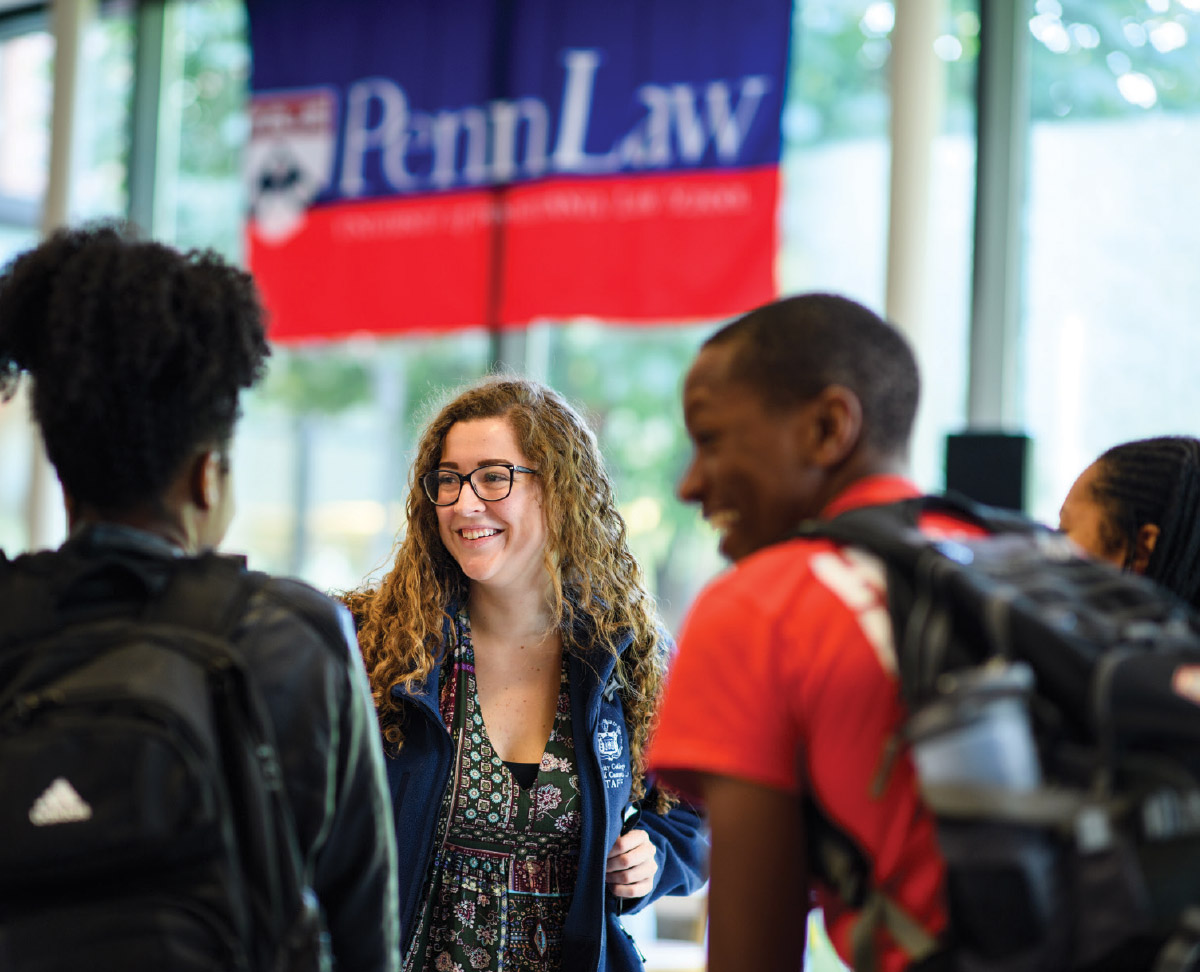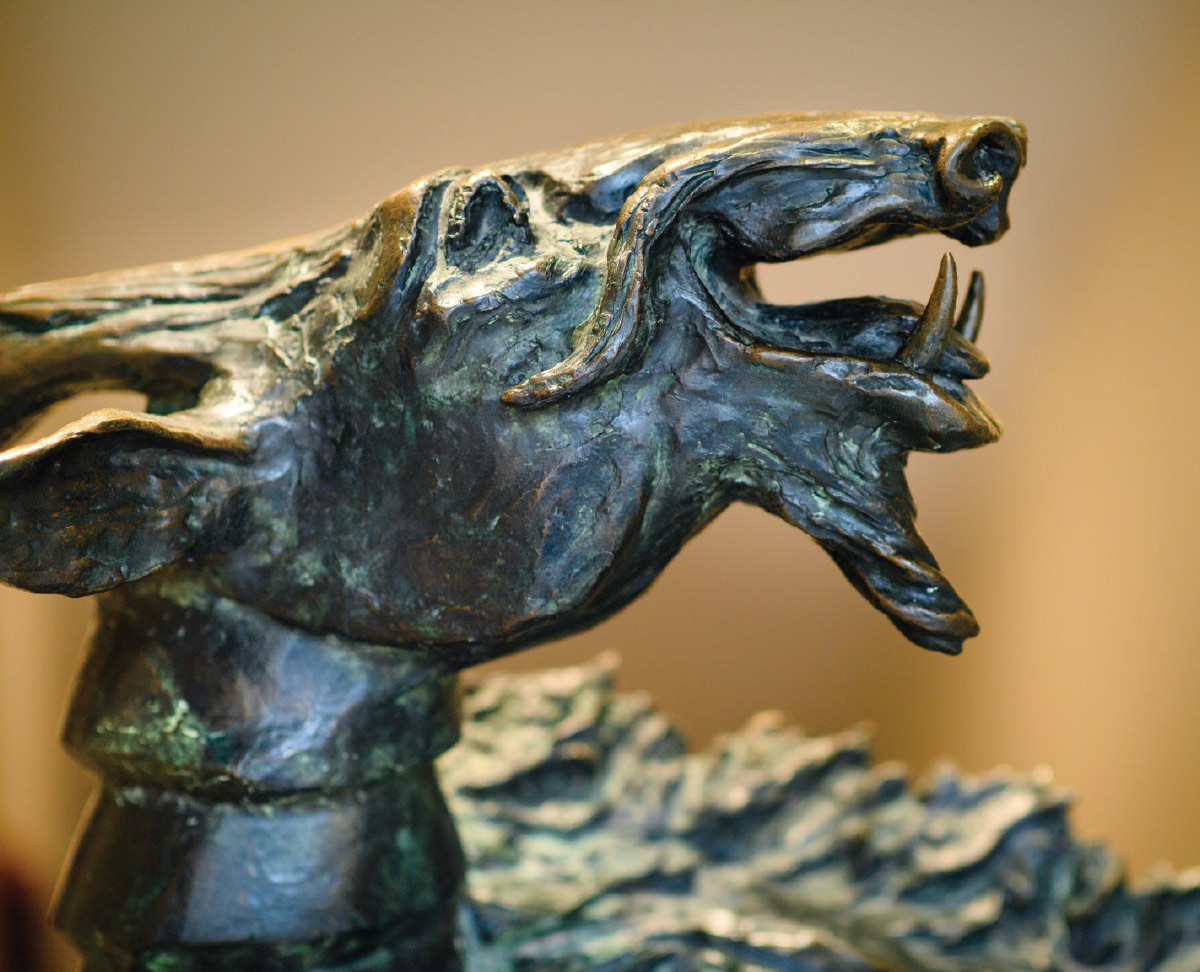



First Generation Professionals Fellow and Editor-in-Chief of the University of Pennsylvania Law Review
Campaign
Close
This transformative campaign solidified the Law School’s position at the vanguard of elite legal education, with landmark gifts from the W. P. Carey Foundation and the Robert and Jane Toll Foundation propelling the historic effort. These contributions, combined with the support of alumni and friends from across the Law School community, have uniquely positioned the Law School to forge a new brand of legal education by expanding cross-disciplinary opportunities, increasing access through financial aid, broadening pathways to service for students who will change the world for the better, and recruiting a diverse cohort of faculty engaged in cutting-edge legal scholarship.
“Thanks to The Power of Penn Law and the generosity of the W. P. Carey Foundation, the Robert and Jane Toll Foundation, and our committed and engaged Board of Advisors and alumni, the University of Pennsylvania Carey Law School is fostering an innovative educational environment to train the lawyers and changemakers of tomorrow,” said Ted Ruger, Dean and Bernard G. Segal Professor of Law.
Expanding Access
Significantly, the Law School was one of the few law schools in the country to freeze tuition for the 2020–2021 academic year in acknowledgement of students’ changed economic circumstances. This decision, coupled with a double-digit increase in financial aid and increased institutional funding to support students in their careers, gave the Law School the flexibility to prioritize the safety of its community and respond nimbly and creatively to an unprecedented crisis.
BEYOND THE CLASSROOM
“Those connections, those networking opportunities, the amazing clients that I was able to work with, I don’t think I would have been able to experience anything like that until 10 years later in my career,” said Yunusov.
These practical experiences provide students with a significant advantage when they enter the workforce, with the Law School ranked first in the country for new graduate employment.
Building bridges across disciplines
“I think there is a lot of value that an individual can bring to the table if they’re able to look at a particular problem from multiple angles,” said JD/MBA candidate Andre Mota L’22, WG’22. Chief among these efforts is the Future of the Profession Initiative, established in 2019 to take a forward-looking approach to the law and identify the skills lawyers need to succeed in a rapidly evolving landscape. As one of the first programs of its kind, it brings together an unmatched network of experts, students, lawyers, and professionals from other fields to lead essential interdisciplinary conversations about the fundamental changes transforming the legal profession today. Moreover, the Master in Law (ML) and LLM programs continue to grow. The ML program provides graduate students, researchers, faculty, and professionals an opportunity to gain a solid understanding of the U.S. legal system. With 50 percent of students already possessing an advanced degree, ML degree candidates bring a combined 485 years of professional experience and a unique perspective into a dynamic classroom.
The LLM program offers students invaluable exposure to the U.S. legal system while infusing the Law School with unique international perspectives on the law. With 156 foreign-trained attorneys, judges, and diplomats from 30 countries, the Class of 2022 represents the largest LLM cohort the Law School has ever welcomed.
“We understand that the practice of law is evolving, and future lawyers will need more than an understanding of legal principles for success,” said Ruger. “As we look beyond this Campaign to the future, we are committed to providing a cross-disciplinary education with top faculty scholars in the field that advances access to justice.”



The campaign gave a huge boost to the Law School, increasing financial aid and experiential learning opportunities, supporting more pathways to public service, and providing resources for the addition of leading scholars and teachers.

The campaign gave a huge boost to the Law School, increasing financial aid and experiential learning opportunities, supporting more pathways to public service, and providing resources for the addition of leading scholars and teachers.
Igniting Positive Change. Inspiring Justice for All.
“As a Toll Fellow, I feel privileged and humbled to know that I can spend my career in public interest starting from my very first legal position,” said Toll Fellow Kate DiVasto L’21. “The Toll Fellowship has allowed me to meet legal mentors, learn to be a client-partner focused attorney, and hopefully go on to mentor other attorneys in the future.”
These efforts are making public interest careers accessible to a broader pool of students and fueling the Law School’s ability to put service and justice into action through recruiting, enrolling, and empowering the next generation of advocates.


Dean and Bernard G. Segal Professor of Law
Scholars of Tomorrow, Today
Outside the classroom, the Law School’s faculty are considered national and international thought leaders in their respective fields. Notably, the Law School dominated the Corporate Practice Commentator’s 2019 list of the top 10 articles on corporate and securities law as the only law school with two faculty members represented and three articles featured. Also of note, in 2019, Dorothy E. Roberts, the George A. Weiss University Professor of Law and Sociology and the Raymond Pace and Sadie Tanner Mossell Alexander Professor of Civil Rights, published the Harvard Law Review Foreword on prison abolition constitutionalism, becoming the second Black woman to pen the Foreword of the esteemed law journal.
Overall, there has been a 170 percent increase in media hits about the Law School faculty and their research over the course of the Campaign, reflecting their research and scholarship’s profound impact on the legal field.
A new era of law
“We are deeply grateful to everyone who supported the Law School throughout this campaign,” said Heather Frattone W’94, L’98, Vice Dean for Development & Alumni Relations at the Law School. “The Campaign’s success is a testament to the strength and engagement of our Law School faculty, staff, and student community; the outstanding support of our alumni, donors, and friends; and the leadership and generosity of our volunteers. I am proud of what we have accomplished and excited by what is to come.”